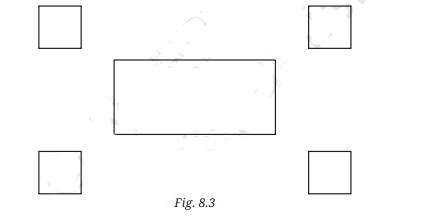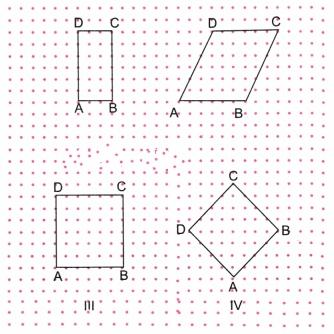Class 6 Maths Chapter 8 Questions and Answers - Free PDF Download
FAQs on NCERT Solutions For Class 6 Maths Chapter 8 Playing With Constructions Exercise 8.2 (2025-26)
1. What is the focus of Exercise 8.2 in Chapter 8?
Exercise 8.2 focuses on constructing squares and rectangles using geometric tools.
2. How can I construct a square accurately?
To construct a square, you can use a compass and straightedge to ensure equal sides and right angles.
3. What tools are needed for constructing squares and rectangles?
You will need a compass, a straightedge (ruler), and a pencil for accurate constructions.
4. Why is it important to learn geometric constructions?
Learning geometric constructions enhances spatial reasoning, problem-solving skills, and a deeper understanding of shapes.
5. Are there practice problems available in the NCERT Solutions?
Yes, the NCERT Solutions provide various practice problems to reinforce your understanding of constructing squares and rectangles.
6. How do these solutions help with exam preparation?
The solutions align with the NCERT syllabus, covering key concepts that are crucial for exams in geometry.
7. Can I access the NCERT Solutions for free?
Yes, the NCERT Solutions for Class 6 Maths Chapter 8 Exercise 8.2 are available for free download in PDF format.
8. What skills do I develop by practicing this exercise?
Practicing this exercise helps develop precision in drawing, critical thinking, and geometric reasoning.
9. How can I improve my accuracy in geometric constructions?
Consistent practice with the NCERT Solutions and paying attention to measurement details will improve your accuracy.
10. What is the benefit of using diagrams in these solutions?
Diagrams provide visual representation, making it easier to understand and follow the steps in constructing squares and rectangles.






























